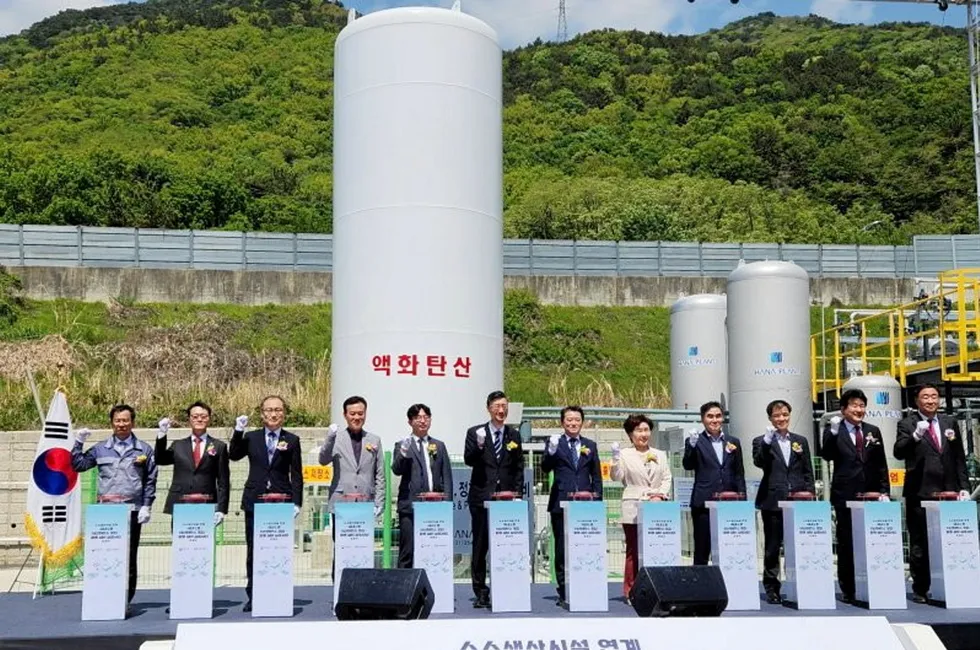South Korea’s first blue hydrogen project completed, alongside nation’s largest H2 refuelling station
Pilot project will see H2 made from fossil gas with CO2 captured and used for water purification

Pilot project will see H2 made from fossil gas with CO2 captured and used for water purification
